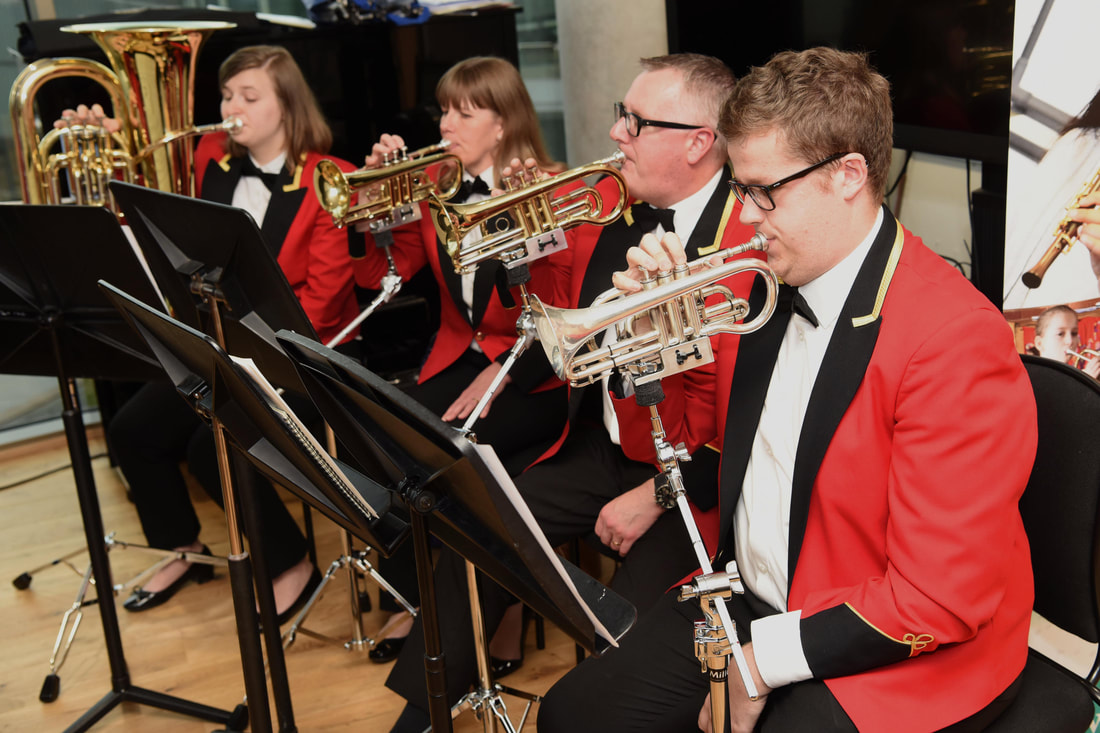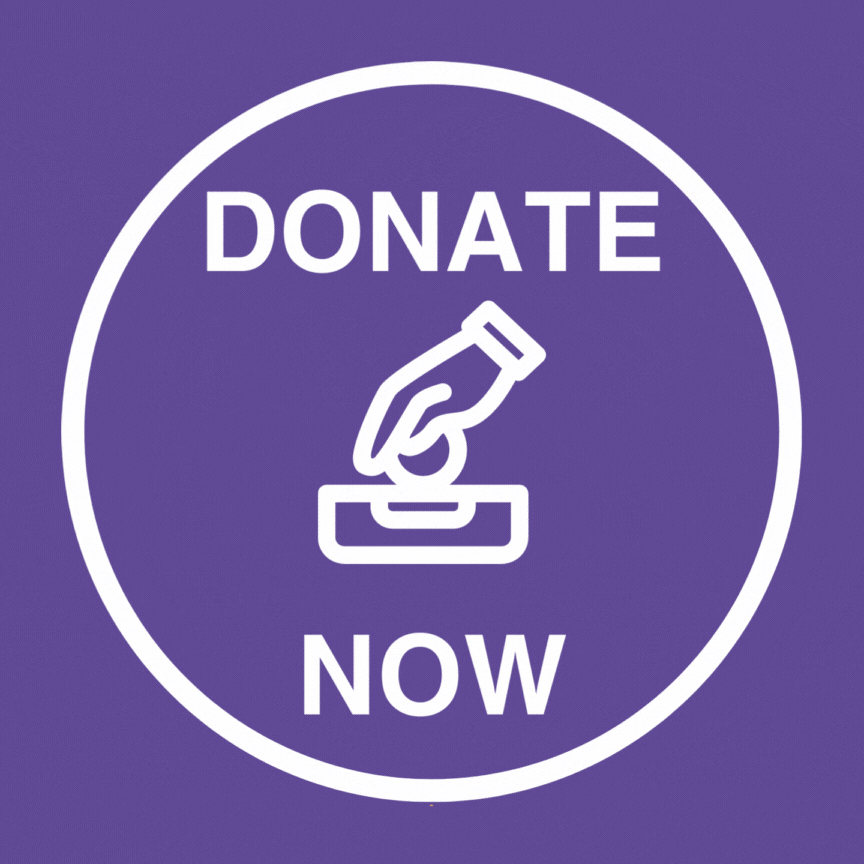Case study: Adding breath to inclusive music-makingHow Brass Bands England and OHMI have joined forces to ensure that disabled musicians have access to their brass instrument of choice
|
Rosie Banham is Membership Services Manager for Brass Bands England. She is part of the charity’s EDI (Equality, Diversity and Inclusion) group.
Here she explains why it’s so important that disabled brass musicians have access to services like those provided by the OHMI Trust.
Here she explains why it’s so important that disabled brass musicians have access to services like those provided by the OHMI Trust.
Brass bands have, traditionally, been seen as white and working class. It’s important to us that we reflect the diversity of our communities today, in all its forms. We embarked on our ‘Challenge 2030’ initiative in Spring 2020, to do just that.
We started out by hosting a roundtable of stakeholders from all walks of life. We asked our brass banders, what challenges do you face? And how can brass bands be more accessible? Meeting the needs of the community of musicians who live with disability is particularly important to us; so much so that we set up a second roundtable dedicated specifically to disability inclusion.
We talked about what it means to fully participate in music-making as a disabled musician. How access to venues can be problematic; not so much as a spectator but certainly as a performer. We were concerned to hear how disabled musicians have been hoisted onto the stage and left there during intervals. Brass band contesting can be particularly problematic. It’s typical that musicians register in one place, leave their belongings in another, join the stage, and then leave in a completely different direction; and all at pace.
We want to help educate venue managers in how they can change all that, and have come up with resource checklists on what needs to be put in place, from good lighting to disabled toilets backstage.
Of course, before we even look at the actual performance, we need to make sure that disabled musicians are aware that there is choice in the instruments that are available for them to play. Musicians have, for too long, been excluded from taking up, or carrying on with, the instrument that most appeals to them; simply because they’re not aware that it, or its supporting equipment, exists in adapted form.
OHMI’s was a vital voice in our debate. It was important that we heard first-hand how the charity could help disabled musicians in getting back to doing what they loved; whether that be after illness or an accident. Similarly, we wanted to learn how people living with disability who had never played a brass instrument, could be supported in their musical journey.
Enabling people to begin, or to carry on with their music-making, doesn’t just have an impact on their musical performance, but on their whole lives. OHMI’s support helps source an appropriate instrument and enabling equipment, regardless of what a musician’s particular upper arm impairment might be. The options are endless: trombone mounts and support brackets, tuba stands, harnesses, software synthesisers, and even a one-handed cornet.
That’s why OHMI’s work is so vitally important, particularly as I’m not aware of any other organisation that offers such support. It’s likely that most people don’t know about the charity until a disabled musician poses the question, ‘what help is there to get me back to playing the instrument I love?’
As a sector-support organisation for Arts Council England, it’s our responsibility to be fully briefed on all forms of support for all types of brass musicians. Our disabled community is no different. That’s why we are such strong advocates of OHMI’s work and why we publicise it on our website, and welcome questions from anyone looking for support.
We would encourage all other music-related organisations to give breath in this way to OHMI’s work – and in turn, to the passion of those living with disability who want to make music.
We started out by hosting a roundtable of stakeholders from all walks of life. We asked our brass banders, what challenges do you face? And how can brass bands be more accessible? Meeting the needs of the community of musicians who live with disability is particularly important to us; so much so that we set up a second roundtable dedicated specifically to disability inclusion.
We talked about what it means to fully participate in music-making as a disabled musician. How access to venues can be problematic; not so much as a spectator but certainly as a performer. We were concerned to hear how disabled musicians have been hoisted onto the stage and left there during intervals. Brass band contesting can be particularly problematic. It’s typical that musicians register in one place, leave their belongings in another, join the stage, and then leave in a completely different direction; and all at pace.
We want to help educate venue managers in how they can change all that, and have come up with resource checklists on what needs to be put in place, from good lighting to disabled toilets backstage.
Of course, before we even look at the actual performance, we need to make sure that disabled musicians are aware that there is choice in the instruments that are available for them to play. Musicians have, for too long, been excluded from taking up, or carrying on with, the instrument that most appeals to them; simply because they’re not aware that it, or its supporting equipment, exists in adapted form.
OHMI’s was a vital voice in our debate. It was important that we heard first-hand how the charity could help disabled musicians in getting back to doing what they loved; whether that be after illness or an accident. Similarly, we wanted to learn how people living with disability who had never played a brass instrument, could be supported in their musical journey.
Enabling people to begin, or to carry on with their music-making, doesn’t just have an impact on their musical performance, but on their whole lives. OHMI’s support helps source an appropriate instrument and enabling equipment, regardless of what a musician’s particular upper arm impairment might be. The options are endless: trombone mounts and support brackets, tuba stands, harnesses, software synthesisers, and even a one-handed cornet.
That’s why OHMI’s work is so vitally important, particularly as I’m not aware of any other organisation that offers such support. It’s likely that most people don’t know about the charity until a disabled musician poses the question, ‘what help is there to get me back to playing the instrument I love?’
As a sector-support organisation for Arts Council England, it’s our responsibility to be fully briefed on all forms of support for all types of brass musicians. Our disabled community is no different. That’s why we are such strong advocates of OHMI’s work and why we publicise it on our website, and welcome questions from anyone looking for support.
We would encourage all other music-related organisations to give breath in this way to OHMI’s work – and in turn, to the passion of those living with disability who want to make music.
We would encourage all other music-related organisations to give breath in this way to OHMI's work - and in turn, to the passion of those living with a disability who want to make music.
Donate to OHMIThere are so many disabled people who are desperate to play music with their peers. We can help to make that happen – but we can only do that with the wonderful support of our funders and donors.
As our instruments have to be hand-made by experts, they can only be produced in small numbers and are therefore expensive. Every little really does help.
|
Contact usIf you have a query or wish to contact us, please use the contact form available here.
You can also write to us: The OHMI Trust, 29 Woodbourne Road, Harborne, Birmingham B17 8BY |
Subscribe to our NewsletterIf you would like to join our mailing list and keep up to date with the latest news, please complete the form available here.
|
Privacy and Cookies Notice | Complaints Policy
All content © OHMI - Enabling Music-Making for Physically Disabled People
The OHMI Trust is a registered charity (Registered in England and Wales Charity No. 1143623, Scotland Charity No. SC052047).
Registered office: 29 Woodbourne Road, Harborne, Birmingham, B17 8BY
All content © OHMI - Enabling Music-Making for Physically Disabled People
The OHMI Trust is a registered charity (Registered in England and Wales Charity No. 1143623, Scotland Charity No. SC052047).
Registered office: 29 Woodbourne Road, Harborne, Birmingham, B17 8BY





